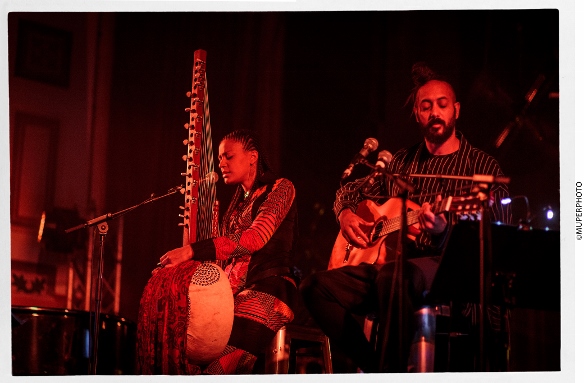
The encounter between Ravid Kahalani (Yemen Blues) and Sona Jobarteh at the Mekudeshet Festival was a mesmerizing evening of music that flowed from meditative to rhythmic groove.
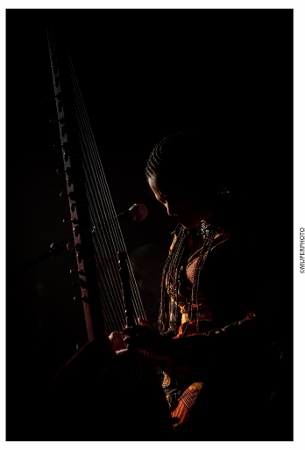
Jobarteh hails from a West African Griot family, one of five central Kora-playing families. Born into a tradition that has been passed on from father to son for seven centuries, Sona is the first woman to expand the tradition, becoming a renowned Kora player and composer. She began learning to play the Kora (a 21-string West African instrument, similar in some ways to a harp or lute) at the age of four, yet also trained in classical Western music, studying cello, piano and harpsichord at the Royal College of Music and composition at the Purcell School of Music.
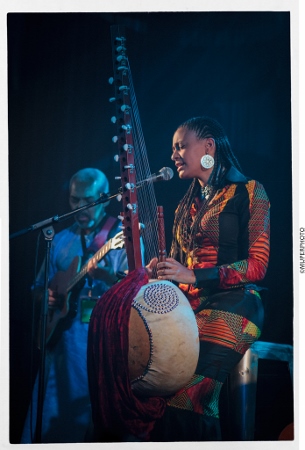
Jobarteh and Kahalani were joined by an ensemble of outstanding musicians: Mamadou Sarr – Djembe, Calabash, Congas, Vocals; Derek Johnson – Acoustic Guitar; Roni Iwryn – percussion; Maya Dunietz – musical direction and piano; Shanir Blumenkranz – bass, oud, djembe; Keren Dun – saxophone, shakers.
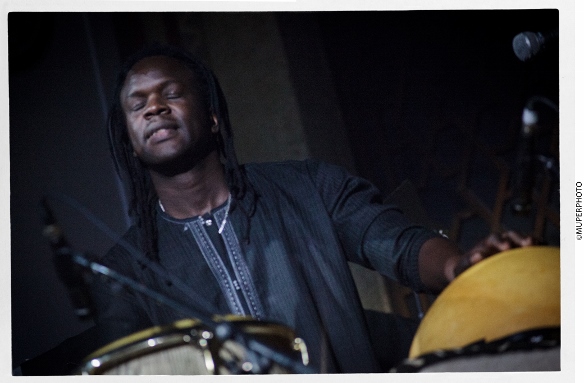
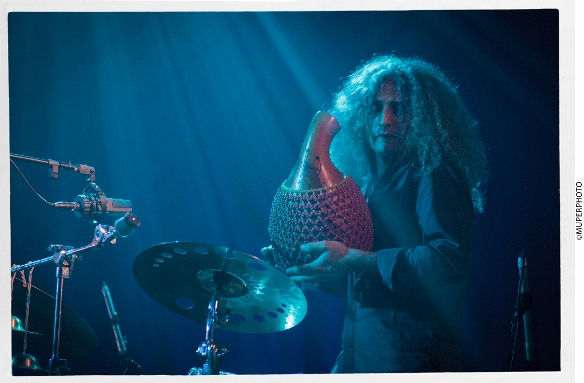
Opening with a very meditative piece, a wordless song calling out into the dark, the second number opened with Jobarteh solo on the Kora. Deftly plucking a cascade of notes with an undulating sound that swirls out, briefly slows and then gathers into a rhythm as the other instruments join in, and the circles grow wider, reaching out. Lights set the mood, changing in color, shape, and tempo to suit the song.
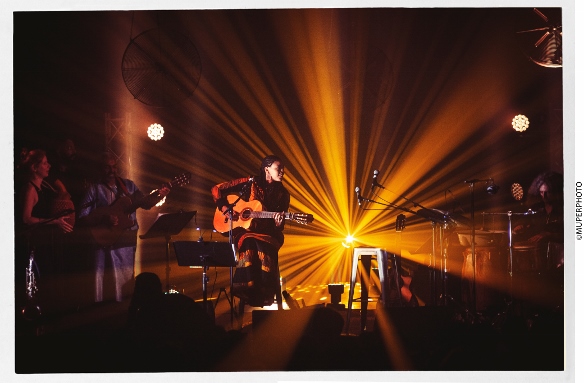
Often the vocals and rhythms danced on parallel paths, together in the same universe of song, yet separate; the heart cries as the earth dances in space.
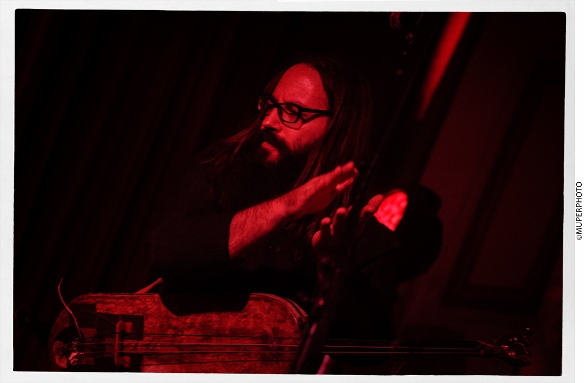
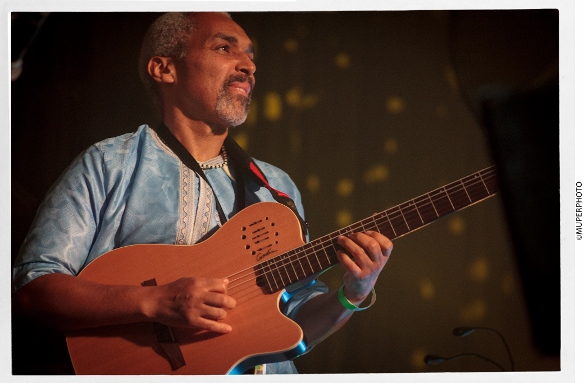
Among the songs performed was Jarabi, a composition by Jobarteh based on a traditional song from Mali. Jobarteh told the audience that the song’s name means ‘love’ saying, “This is about unconditional love, what we are all here for.” There was no need to understand the words of the song to feel the love. In the last part, the song sounds like a call and response, almost like an invitation to join in and sing.
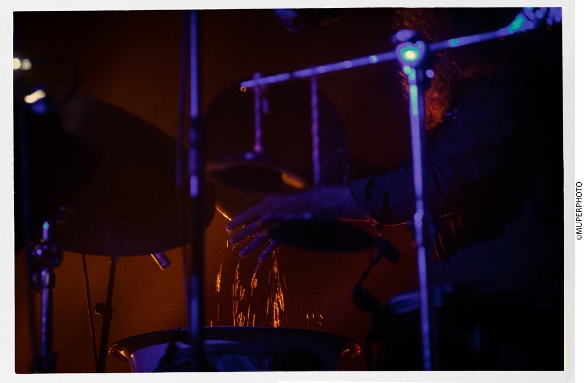
Calling on all the elements, percussionist Ron Iwrin worked with a water drum in a mesmerizing duet with Jobarteh. Swirling his hand in the water, filling the bowl of the drum and letting the water spill down, while tapping out a rhythm with fingers flying in a mystical merging of precision and chance, speed and drift.
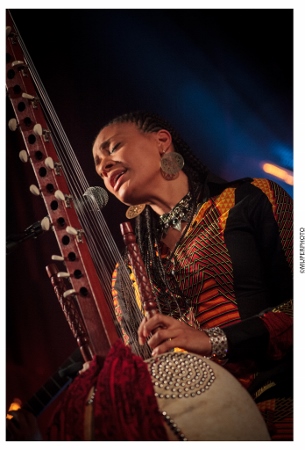
Jobarteh, who divides her time between West Africa and the UK (where she was born), shared with the audience a new song, which she explained is about “distance, being apart and feeling distance as something very painful.” She played this song on the guitar, which she modestly claimed she only “pretends” to play. Her voice is soft as a caress, yet also sounds out clear and strong.
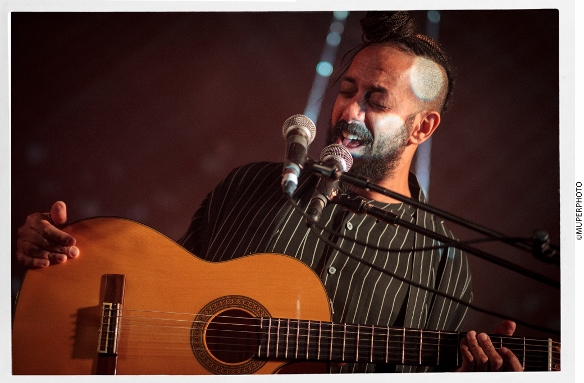
Kahalani is a versatile performer who brings an emotional depth and immense energy to every song. On this night, he shared a new song – as yet unnamed – with the audience. Kahalani danced, Jobarteh’s fingers danced on the Kora, the groove was in place, and everything was moving.
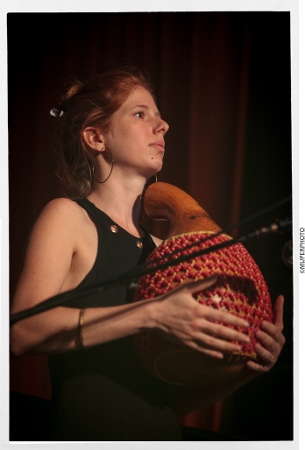
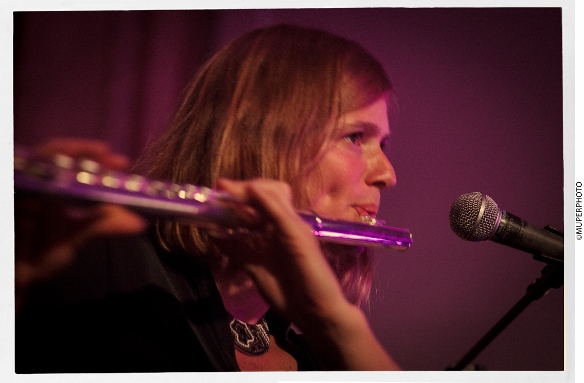
For the final song of the evening, Jobarteh took up the guitar again, to play the first song she ever composed on the guitar, a song whose name means “Thank you.” The dialogue between the musicians, a dialogue that began in intimacy between Blumenkranz and Sarr, percussion opening out in intensity with Iwryn, and expanding in ever-widening circles, had the spontaneous feel of a late night jam. All this audience member can say is: thank you.
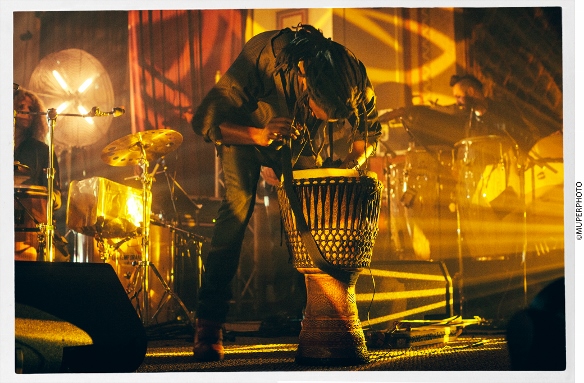
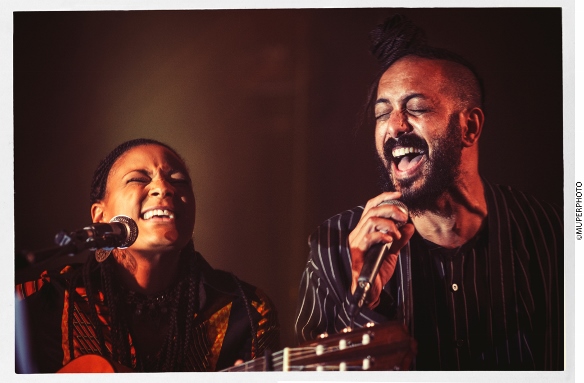
Sona Jobarteh – Vocals, Kora and Acoustic Guitar; Mamadou Sarr – Djembe, Calabash, Congas, Vocals; Derek Johnson – Acoustic Guitar; Ravid Kahalani – vocals, guitar; Roni Iwryn – percussion; Maya Dunietz – musical direction and piano; Shanir Blumenkranz – bass, oud, djembe; Keren Dun – saxophone, shakers.
Many thanks to MUPERPHOTO, who captures the feeling of the music and the moment in his photographs.





